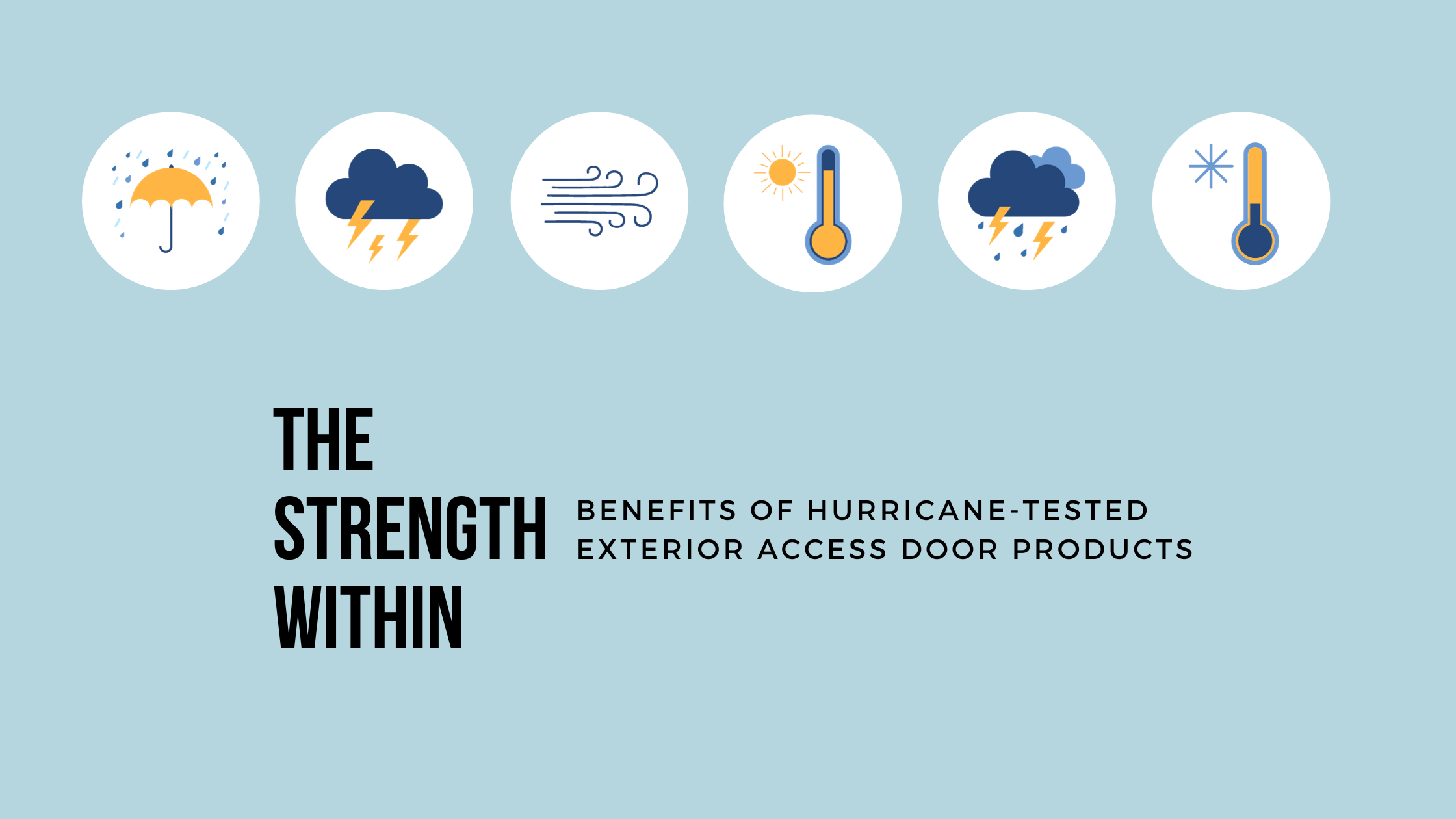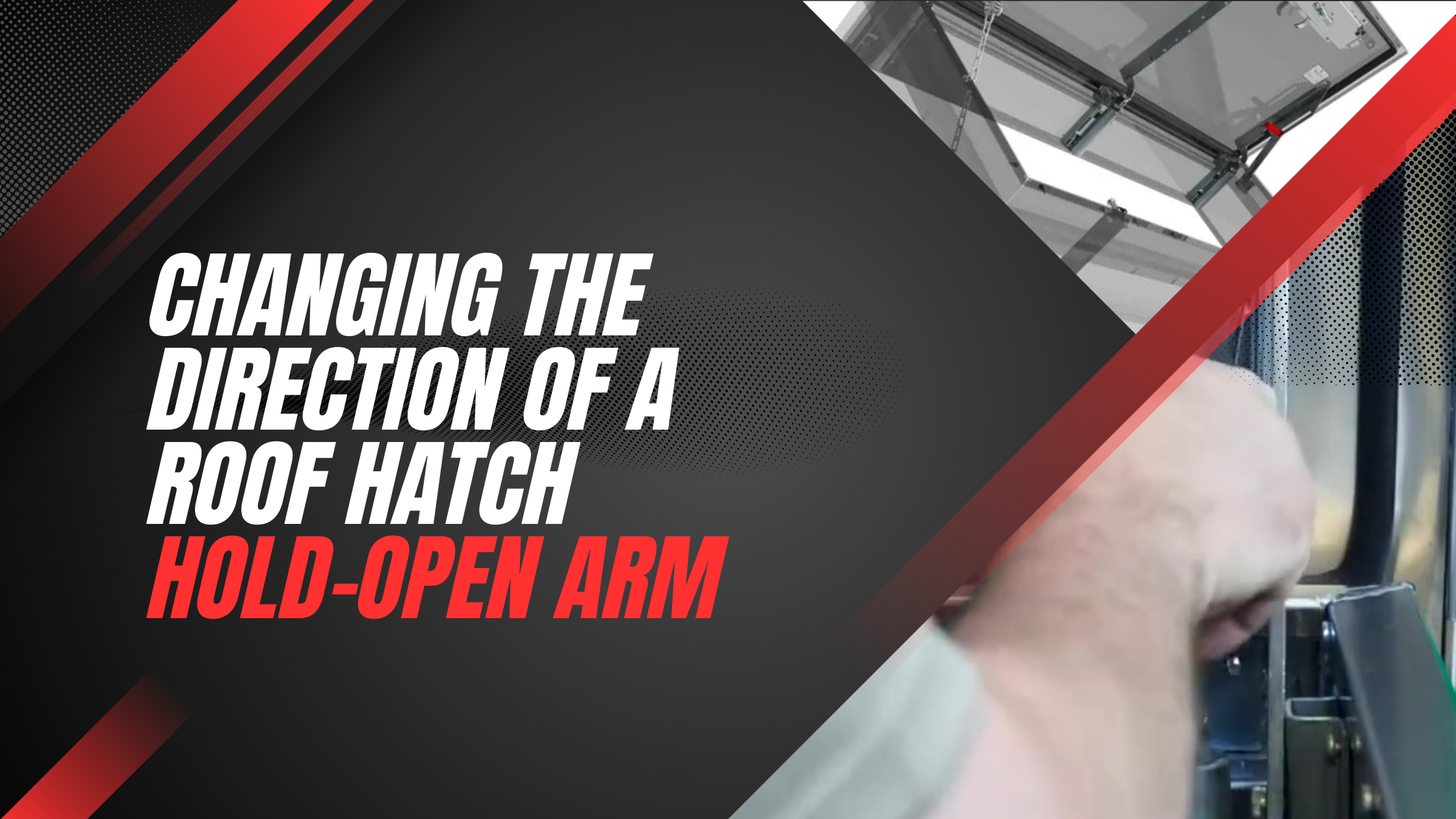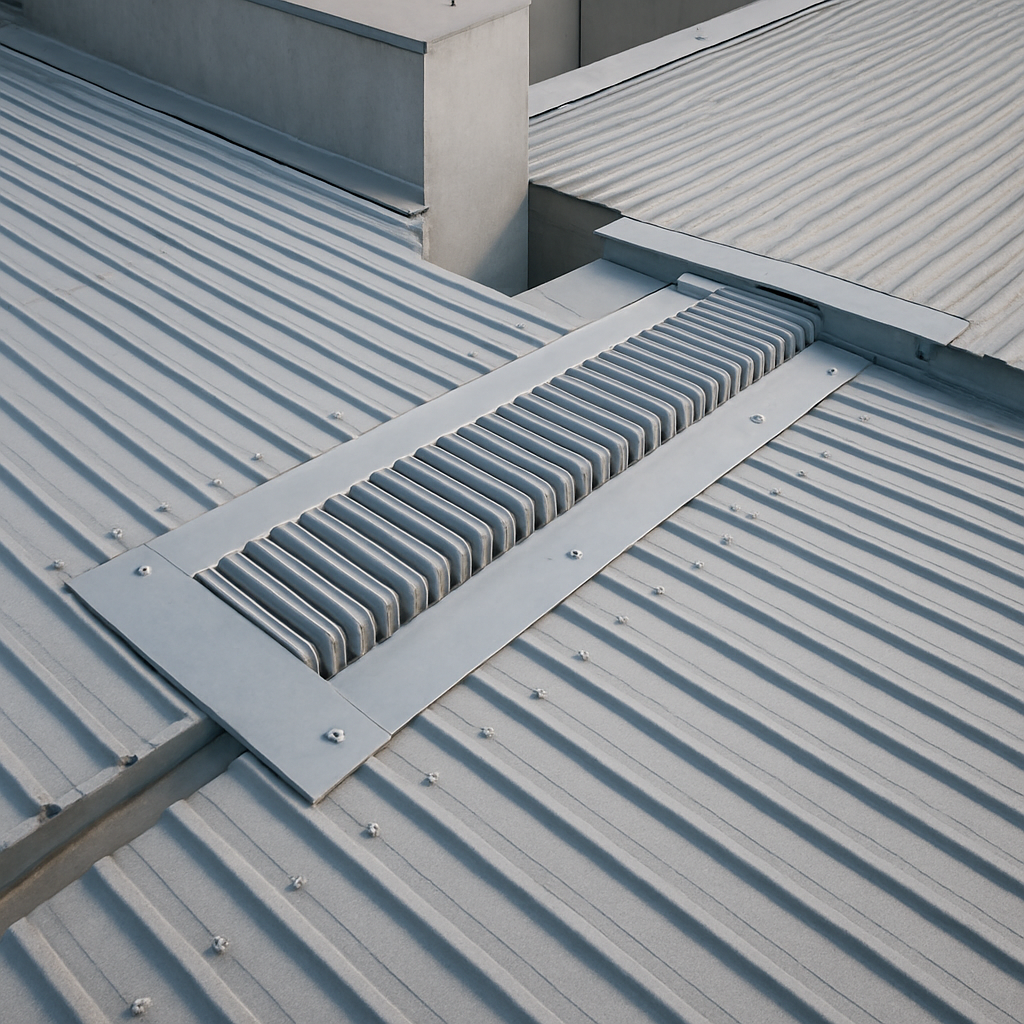Benefits of Hurricane-Tested Exterior Access Doors

Fortifying Your Building: The Advantages of Hurricane-Tested Exterior Access Doors
When it comes to commercial buildings, safety and resilience are paramount. The impact of hurricanes and severe weather events can be devastating, making it essential to fortify every aspect of the structure. One often overlooked component is the exterior access door. As the 2023 hurricane season is already active with the US experiencing three tropical storms and one hurricane since January, we'll explore the numerous benefits of Florida-Approved hurricane-tested commercial building exterior Access Doors products, highlighting why they're a game-changer for modern construction.
Florida Product Approval (FPA) is a rigorous evaluation process that commercial building exterior access doors must undergo to ensure compliance with Florida's strict building codes, especially those designed to withstand hurricane conditions. While specific tests may vary depending on the type of access door, here are some of the common tests and criteria involved:
Impact Testing:
Doors are subjected to impact tests, simulating flying debris during high-wind events. These tests evaluate the door's ability to resist penetration and remain intact.
- TAS 201 - Impact Test Procedures
Scope: This protocol covers test procedures for conducting the hurricane impact test of materials and determining whether a particular product provides sufficient resistance to windborne debris.
Test Procedure: The large missile is comprised of a piece of timber having nominal dimensions of 2 inches by 4 inches (51 mm by 102 m) weighing 9 pounds (4.1 kg), shot from an air cannon using compressed air, and impacts the surface of each test specimen at a speed of 50 feet per second (15.2 m/s) or 80 feet per second (24.38 m/s). The small missile consists of solid steel balls each having a mass of 2 grams (0.07 oz) (+/-5 percent) with a 5/16-inch (7.9 mm) nominal diameter. Each missile impacts the surface of each test specimen at a speed of 130 feet per second (40 m/s). Specimen impact quantities and locations are defined in the Florida Building Code, Chapter 1626. After completion of the large or small missile impacts, each test specimen shall then be subjected to the cyclic pressure loading defined in Table 1626. - TAS 202 -Criteria for Testing Impact & Non-impact Resistant Building Envelope Components Using Uniform Static Air Pressure
Scope: This protocol covers procedures for conducting air infiltration resistance, structural wind loading, and water infiltration tests using uniform static air pressure (measured in psf) followed by forced entry resistance testing.
Test Procedure: First, air infiltration is measured at standard pressures of 1.57psf and 6.24psf. Air infiltration is followed by structural loads where deflection and permanent set are measured at preload (75% of overload) and design load in both the positive and negative directions; each load is held for 30 seconds. After structural loads are performed, water infiltration is performed at a minimum of 15% of the positive design load. Water infiltration is followed by structural overloads (between 1.5 and 3 times the design load, depending on the product) in both positive and negative directions. Deflection and permanent set are measured, loads are held for 30 seconds. Finally, forced entry resistance is performed. - TAS 203 - Criteria for Testing Products Subject to Cyclic Wind Pressure
Scope: This protocol covers procedures for conducting the cyclic wind pressure loading test required by the Florida Building Code, Building, and TAS 201-94.
Test Procedure: Cyclic structural loading is performed in both the positive and negative directions. A total of 4500 cycles are performed in the positive direction in 4 stages of increasing pressure followed by a total of 4500 cycles in the negative direction in 4 stages of decreasing pressure. The pressures at each stage are determined by the design pressure of the product.
Manufacturers must provide detailed documentation and test reports to demonstrate compliance with Florida's building codes and obtain Florida Product Approval for their commercial building exterior access doors. Builders and contractors should always verify that the doors they use have the necessary approvals for the specific project and location.
For additional information, visit Florida Product Approval.
Detailed below are five exterior access doors benefits to your building:
-
Durability
Hurricane-tested access doors are engineered to withstand extreme wind forces and impacts. Rigorous testing ensures they can endure the harshest conditions, protecting your building's interior from the elements. With these doors in place, you can have confidence in the long-term durability of your structure.
-
Enhanced Safety
Safety is non-negotiable. Hurricane-tested access doors provide an extra layer of security during storms. They resist wind-driven debris and maintain their structural integrity, reducing the risk of breaches that can compromise the safety of occupants and property.
-
Code Compliance
Building codes and regulations are in place for a reason – to ensure the safety and resilience of structures. Hurricane-tested access doors are designed to meet or exceed these codes, ensuring your building is in full compliance. This not only safeguards lives and property but also helps streamline the permitting process.
-
Energy Efficiency
In addition to withstanding hurricane forces, these doors are often equipped with superior insulation, which can significantly enhance energy efficiency. The insulation helps maintain a stable indoor temperature, reducing the load on HVAC systems and lowering energy costs over time.
-
Adaptability
Hurricane-tested access doors aren't just for hurricane-prone areas. They can benefit buildings in various regions, as they also provide protection against severe storms, high winds, and potential impact events. Their adaptability makes them a valuable addition to any commercial structure.
The Nystrom Coastal Zone Access Door is the industry’s only high-velocity and impact-tested door. With a design pressure of +/- 80psf, this door is sure to withstand Mother Nature’s toughest storms.
In an era where climate unpredictability is on the rise, investing in hurricane-tested commercial building exterior access door products is a wise decision. These doors offer durability, safety, code compliance, energy efficiency, peace of mind, adaptability, and long-term savings – a comprehensive package that can ultimately safeguard your building and its occupants in the face of nature's fury. Don't wait until the next storm season; fortify your structure now for a resilient and secure future.
Nystrom is the leading manufacturer of commercial building access doors. Reach out to our Specifications Consultants or contact our knowledgeable Customer & Sales Support team on your next project involving high-quality exterior access doors.


.png?width=760&height=505&name=blog%20image_Coastal%20Zone%20AD%20(1).png)

